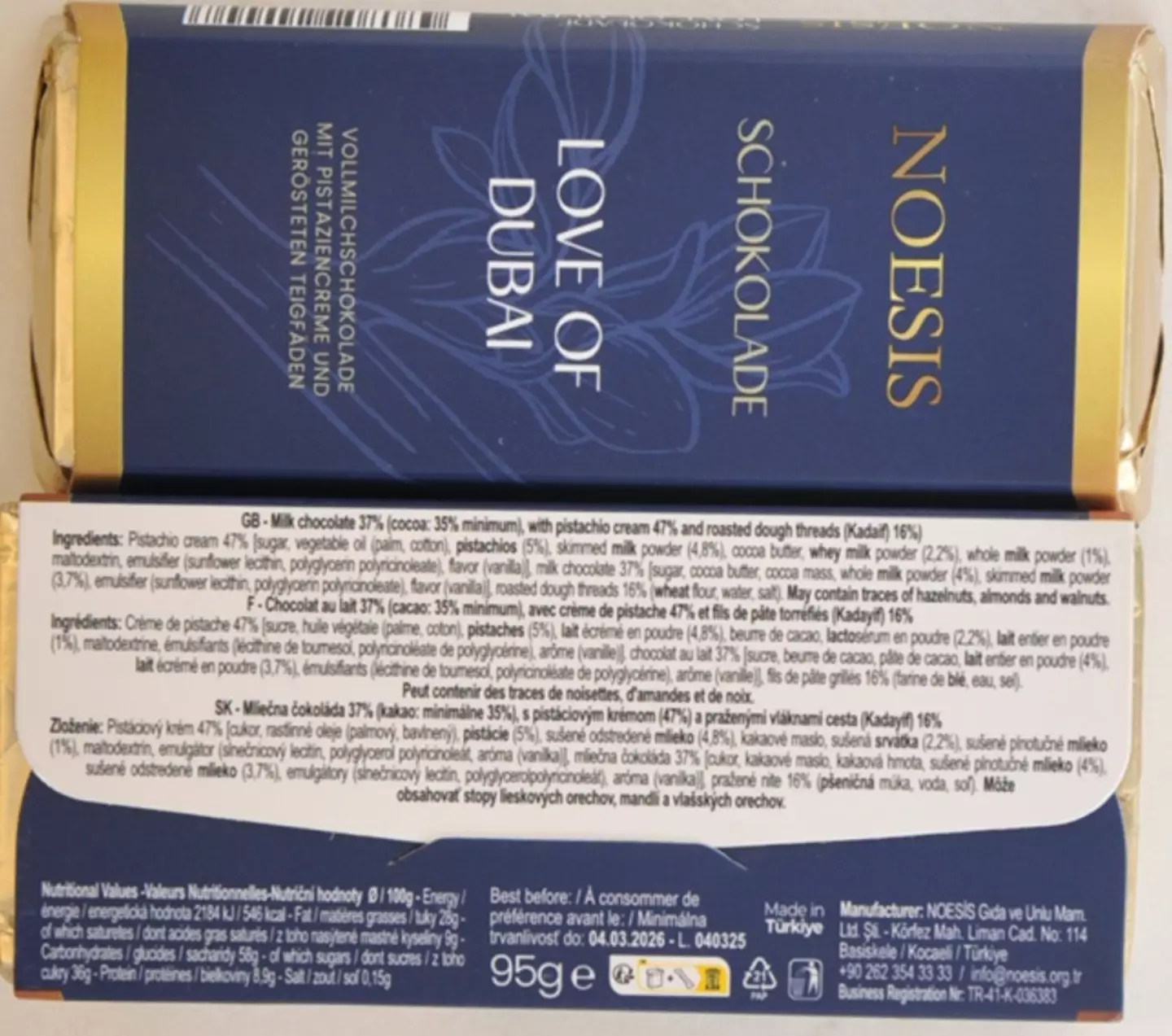
Social media trends come and go, but this one’s proven particularly sticky.
Along with a general air of online fawning over the prestige of visiting, working or living in Dubai comes a taste for bringing those aesthetics closer to home. If a newly-launched business development unit or a Bugatti aren’t within reach, you could always just grab some Dubai-style chocolate.
If you’ve somehow missed the craze, Dubai-style chocolate is kind of like a Kinder bar for grown-ups. Rather than a milk chocolate coated over a white chocolate filling, it’s dark chocolate coated over pistachio.

Advert
It’s become the it-chocolate of 2025, and if you weren’t already aware of it then perhaps it’s one of those things where you’ll now notice it everywhere.
Unfortunately, if you’re already a fan or you’re interested in trying it out, Dubai-style chocolate now comes with a health warning.
Recent reports of Dubai-style chocolate bars occasionally having insufficiently-detailed ingredients lists have seen the UK Food Standards Agency issue a warning about a particular brand.
Anyone who’s purchased Neosis Schokolade Love of Dubai should note that it’s been found to contain peanuts despite the allergen not being listed in the ingredients labelling.
Advert
Food standards in the UK require that all food products come with full ingredients lists with clearly-marked allergen information, with this product being one example that falls short.
Neosis Schokolade Love of Dubai is produced by NEOSIS, Gida ve Unlu Mam Ltd.
Retailers stocking the chocolate have been advised by the FSA to immediately cease sales and withdraw the product. Where sales have been made, the FSA has advised retailers to issue recalls, too.
Peanut allergies can have fatal consequences. Exposure can trigger anaphylaxis in peanut allergy sufferers, and without immediate treatment with an epinephrine injector there’s a high risk of fatality.
Advert

The FSA said that Black Sea Trading Ltd has distributed the product to UK retailers, but it has not responded to the Agency’s attempts to get in touch.
“We are working closely with relevant enforcement authorities to progress investigations and ensure affected products are withdrawn from the market and, where sold at retail, recalled,” said the FSA in a statement. “We are informing allergy organisations of the issue.”
It continued: “Don’t buy this product, and if you have bought it, don't eat it, especially if you have a peanut allergy. Dispose of the product at home and get in touch with your local Trading Standards in Great Britain or Environmental Health Officers in Northern Ireland, to let them know where you purchased it.”
Topics: UK Food, News, Social Media, Health
